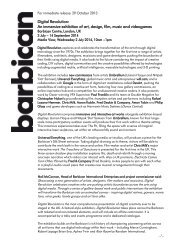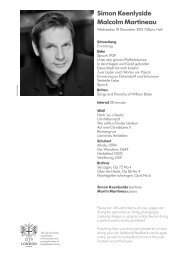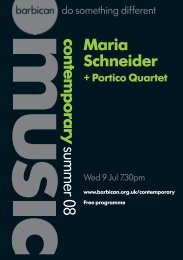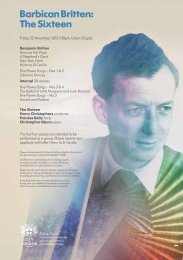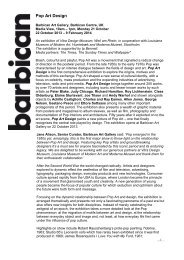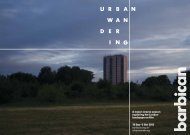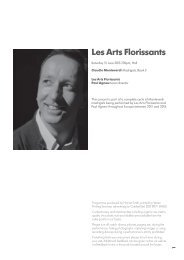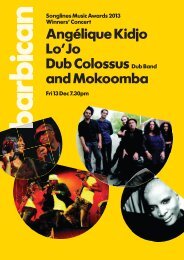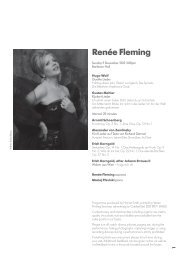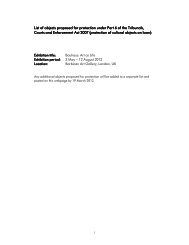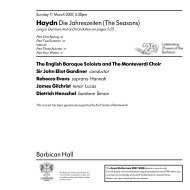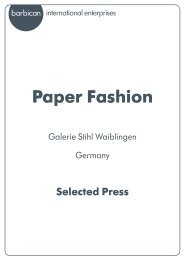Download your concert programme here - Barbican
Download your concert programme here - Barbican
Download your concert programme here - Barbican
You also want an ePaper? Increase the reach of your titles
YUMPU automatically turns print PDFs into web optimized ePapers that Google loves.
Thursday 4 February<br />
many of the world’s most distinguished orchestras in<br />
<strong>programme</strong>s that mix his own works with compositions by<br />
figures as diverse as Debussy, Stravinsky, Ravel, Zappa, Ives,<br />
Reich, Glass and Ellington. The New York Philharmonic<br />
spotlighted him in a Composer’s Week dedicated to his music<br />
in 1997, but for many listeners his most memorable<br />
connection with the orchestra was the unveiling of his On the<br />
Transmigration of Souls, a meditation on the attacks of 11<br />
September, 2001, which the orchestra co-commissioned and<br />
then premiered at the outset of the 2002 season, and whose<br />
subsequent recording won three Grammy awards, while the<br />
work itself garnered a Pulitzer Prize for its composer.<br />
In 2008 John Adams published Hallelujah Junction, a<br />
compelling book of memoirs and commentary on American<br />
musical life. T<strong>here</strong>, we read that The Wound-Dresser ‘began<br />
as a plan to set prose cameos from Walt Whitman’s account<br />
of his Civil War days in [his prose collection] Specimen Days’.<br />
The texts, which involved Whitman’s service in military<br />
hospitals, ‘made me think of the stories I had heard from San<br />
Francisco friends, many of them gay, who had lost partners<br />
and loved ones to the plague of AIDS that, in 1989, was still<br />
devastating the country’. They also related to ‘the memory of<br />
a more personal story, that of the long, slow decline of my<br />
father from Alzheimer’s disease … [and] my mother’s<br />
struggle and the devotion with which she nursed him’.<br />
‘Instead of setting Specimen Days’, he reported, ‘I chose The<br />
Wound-Dresser, a poem that is both graphic and tender,<br />
perhaps the most intimate recollection of what Whitman<br />
experienced in his years of selfless work as a nurse and<br />
caregiver in the hospitals that surrounded wartime<br />
Washington.’<br />
Programme note © James M. Keller, New York Philharmonic<br />
Program Annotator<br />
INTERVAL<br />
10




